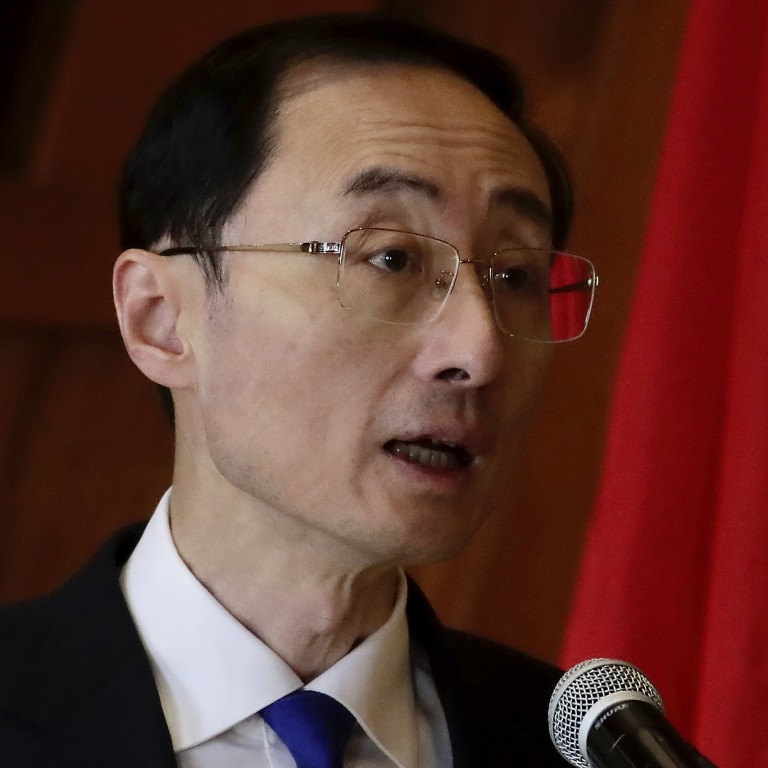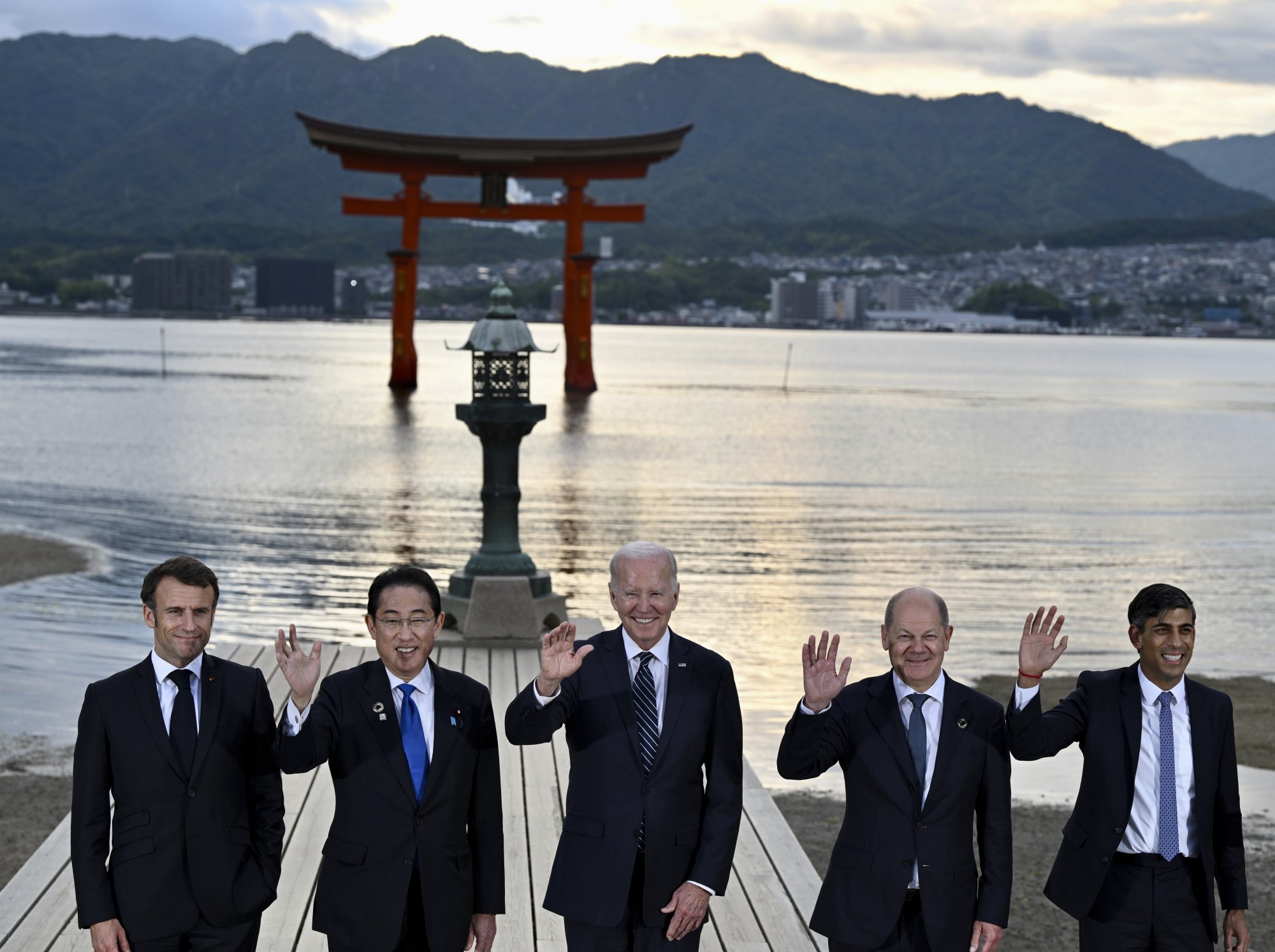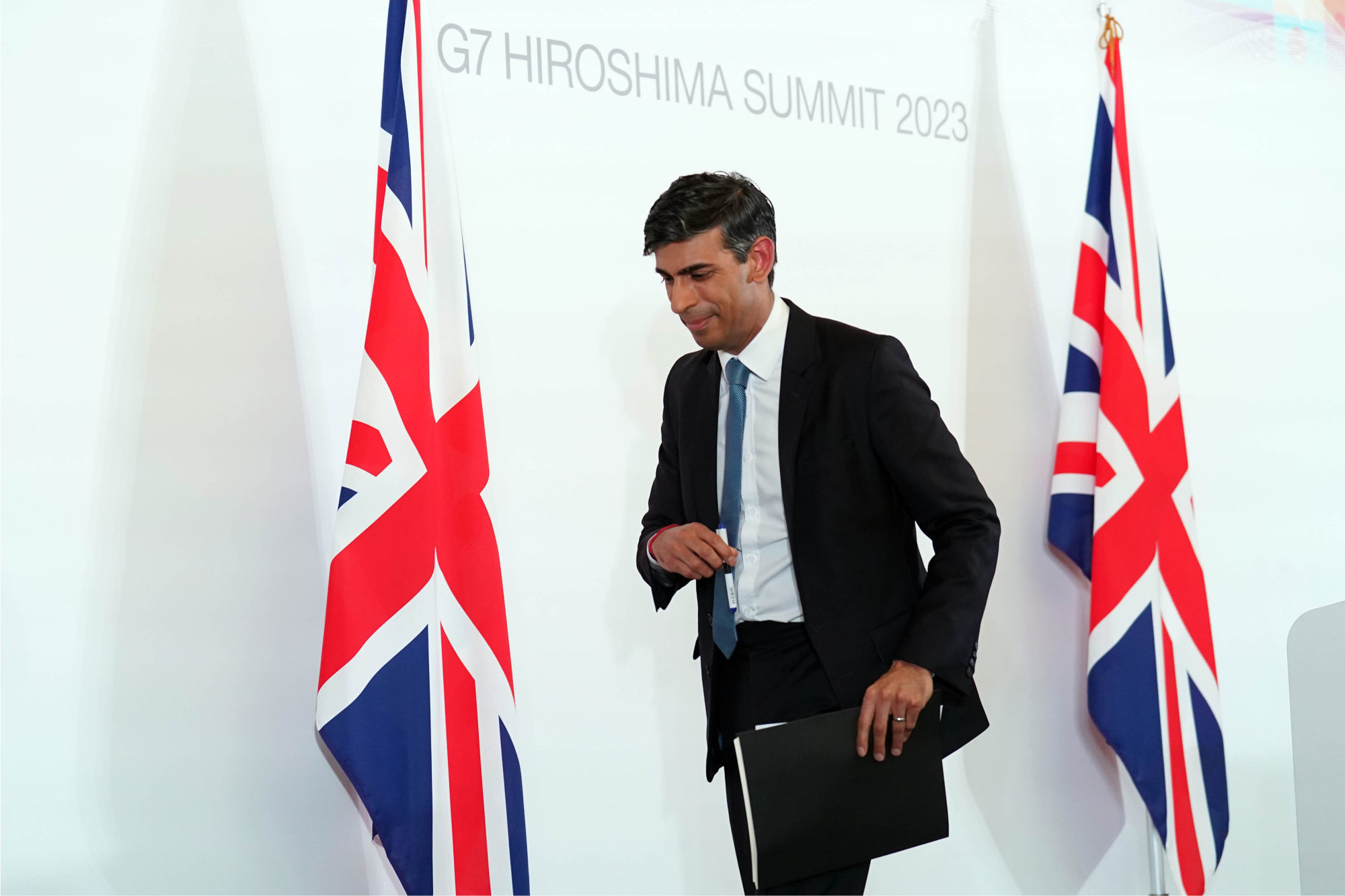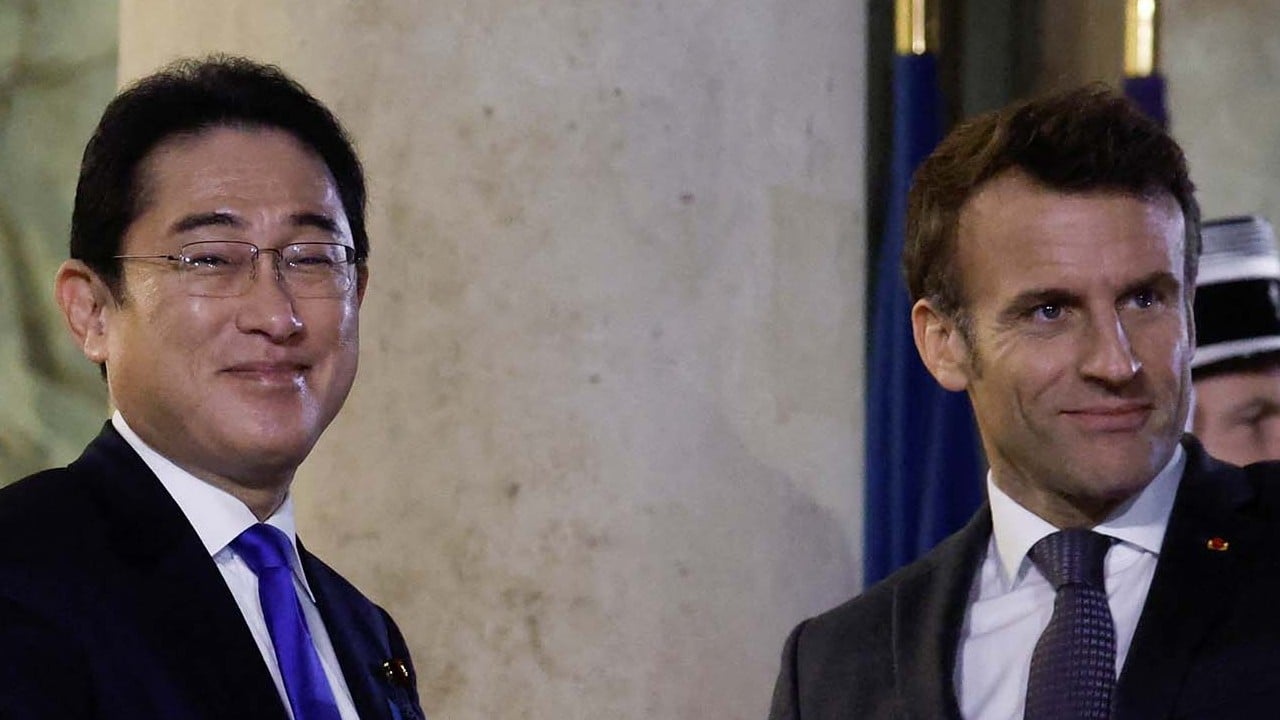
China hits out at Japan over G7 summit, accuses US-led bloc of ‘camp confrontation and cold war mentality’
- Chinese foreign vice-minister Sun Weidong summons Japanese ambassador as embassies in Tokyo and London also lash out over comments from summit
- ‘Dirty water’ of economic coercion cannot be poured on China, Sun says, urging that Japan ‘correct its understanding’ of the country
The escalating war of words follows the release of G7 joint statements that have also prompted China to take aim at the United States and Britain.
Chinese foreign vice-minister Sun Weidong summoned Japanese ambassador Hideo Tarumi on Sunday to express Beijing’s “strong dissatisfaction and resolute opposition” to the previous day’s G7 joint communique, and other documents concerning Taiwan and other “China-related issues”, the Chinese foreign ministry said.
The pair had a candid exchange, with Tarumi issuing a rebuttal in response, according to Japanese media reports.

In a joint communique issued at the close of their three-day summit in Hiroshima, the G7 called for peace and stability across the Taiwan Strait, while voicing serious concerns about tensions in the East and South China seas as well as the human rights situation in China, including in Tibet and Xinjiang.
Sun lashed out at Japan over its G7 presidency and role in agenda-setting for the summit, while accusing the US-led group of rich nations of “clinging to the camp confrontation and cold war mentality”.
He said Japan, as this year’s G7 chair, had joined hands with other countries “in activities and joint declarations … to smear and attack China”, in moves that “grossly interfered in China’s internal affairs, violated the basic principles of international law … and undermined China’s sovereignty, security and development interests”.
US and Japan seek to unite G7 against China. Should Beijing be worried?
“Japan should correct its understanding of China, grasp strategic autonomy, adhere to the principles of the four political documents between China and Japan, and truly promote the stable development of bilateral relations with a constructive attitude,” Sun was quoted as saying by the Chinese foreign ministry.
While most countries, including the US and its allies like Japan, do not recognise self-ruled Taiwan as independent, they are opposed to any forcible change to the status quo.
‘Pit of fire’: Chinese envoy’s remark to Japan over Taiwan policy slammed
Sun also dismissed criticism over Beijing’s assertiveness in disputed waters in the East and South China seas as “malicious speculation over the ‘changing the status quo with strength’”.
On the G7 leaders’ concerns about human rights in China, he said matters relating to Hong Kong, Xinjiang and Tibet were “purely internal affairs” on which Beijing would brook no “irresponsible remarks” or “arbitrary interference” by external forces.
Sun also urged the G7 to “stop ganging up and forming exclusive blocs, stop containing other countries, and stop creating and stoking bloc confrontation”. Beijing would “never accept the ‘family law and gang rules’ concocted by a few countries”, he said, in a comment apparently directed at the US though he did name it.
But Sun did call out the US by name as “the initiator and biggest risk for breaking the rules of the international order and disrupting the functioning of the world economy”, asserting that “the dirty water of ‘economic coercion’ and ‘debt trap’ cannot be poured on China”.
According to a readout by the Japanese embassy in Beijing, Tarumi said in his rebuttal that it was “natural” for the G7 to refer to issues of common concern as it had done in the past.
Unless China changed its behaviour, the G7 would continue to voice their common concerns about Beijing, Tarumi told Sun.
“If China does not want these issues to be referenced, it should first respond more positively,” the embassy quoted him as saying.
Tarumi also accused China of creating obstacles to promoting civilian exchanges with Japan.
“China often says that Japan-China civilian exchanges are important, but in fact whenever the atmosphere in Japan-China relations deteriorates, China hinders bilateral civilian and cultural exchanges, and [the Japanese side] hopes that China will deal with them appropriately,” he said, according to the readout.
Japan, Vietnam vow to work to tackle China in nearby waters
The exchange between Sun and Tarumi came a day after the Chinese embassy in Tokyo issued a similarly harshly-worded criticism of Japan’s hosting of the G7 summit.
China’s foreign ministry, in a statement issued just hours after the release of Saturday’s G7 joint communique, also condemned the US as “the real coercer that politicises and weaponises economic and trade relations” through unilateral sanctions, decoupling efforts, and disruption of industrial and supply chains.
“We urge the G7 not to become an accomplice in economic coercion,” the statement said.
Chinese state news agency Xinhua had also used similar terms last week to berate the US as the “coercer-in-chief”, with the G7 members acting as “half accomplices, half victims” in the Washington-led clique.
Japanese Chief Cabinet Secretary Hirokazu Matsuno said on Monday that Tokyo’s policy towards China had been consistent. Japan would insist on matters as needed and urge responsible behaviour, while taking steps to address concerns and cooperate on common issues, Matsuno said, according to Reuters.
Meanwhile, the Chinese embassy in London criticised Prime Minister Rishi Sunak in a statement on Monday, urging the British leader to stop slandering and smearing China to avoid further damage to bilateral relations.

In a speech before leaving Hiroshima on Sunday, Sunak had warned of the threat from an “increasingly authoritarian” China both at home and overseas, saying it posed the “biggest challenge of our age to global security and prosperity”.
But he added that the agreed G7 approach was about “de-risking” the situation rather than “decoupling” and cutting ties with China, as the bloc sought to bolster supply chains and tackle economic coercion.
The embassy statement accused Sunak of “simply parroting” the words of others in making “malicious slanders in disregard of the facts”.
China was “a defender of the international order”, it said, while accusing the US and “a handful of its vassal countries” of meddling in the internal affairs of other countries and provoking confrontation. “They are the ones that pose the biggest challenge to global security and prosperity.”
British politicians should focus on domestic issues, it added, “instead of always dancing to the tune of the US, stirring up trouble around the world, and creating division and confrontation”.


